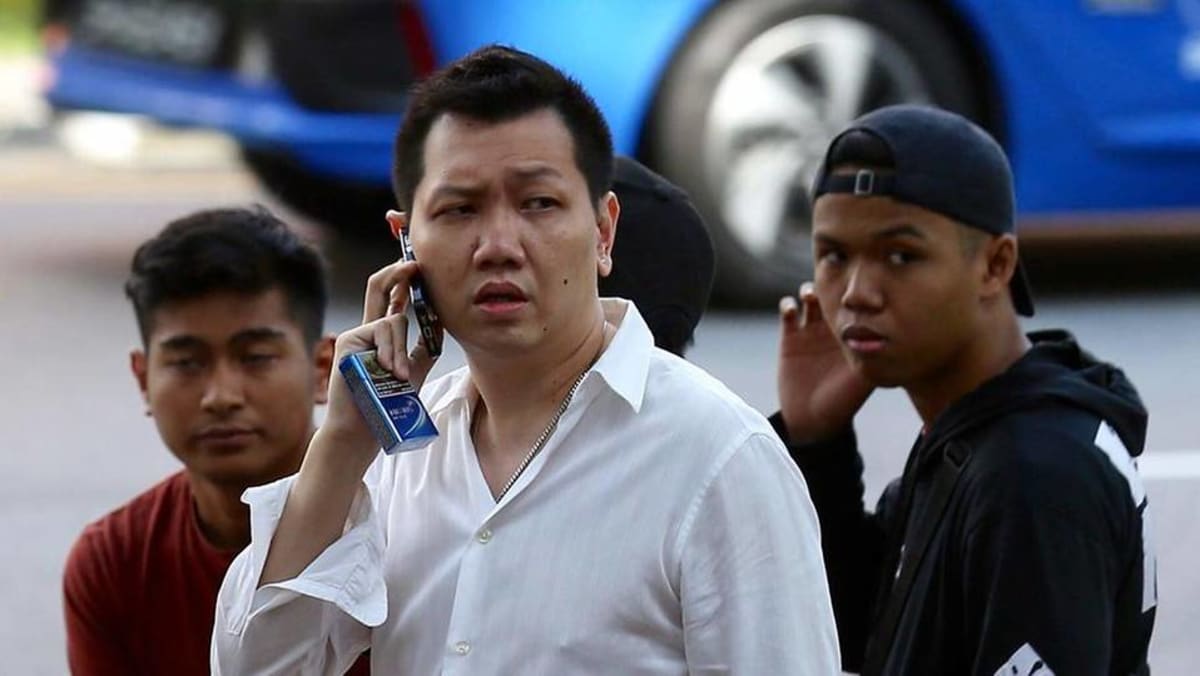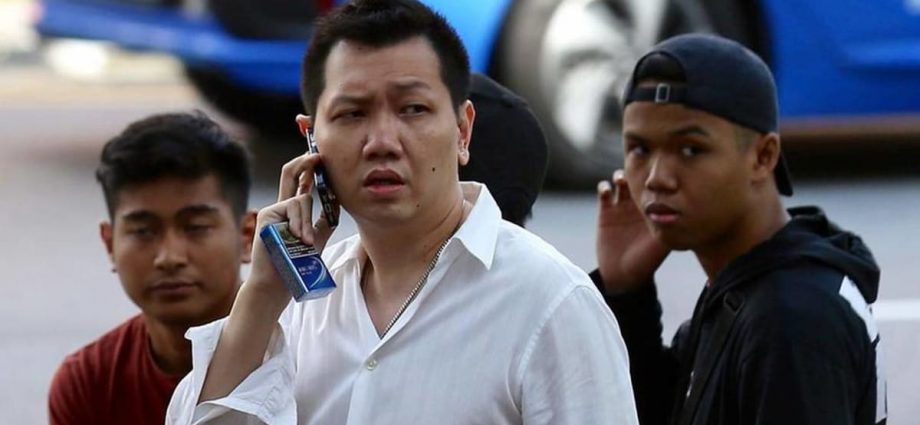
SINGAPORE: A court on Monday (Feb 27) ordered a Maserati used by a man who injured a police officer by dragging him along the road with his vehicle to be forfeited to the state.
This came after Lee Cheng Yan pleaded with the court to have the vehicle returned. His sister also urged the district court to do so, claiming that Lee had promised the car to his parents to cover his hefty legal fees and child support that they had been footing.
In her decision, District Judge Kamala Ponnampalam said that the purported “pledge” of the car, even if done with bona fide intent and not as a means of escaping the forfeiture legislation, does not avert a section in the Road Traffic Act that compels the court to order the vehicle’s forfeiture under certain circumstances.
Lee is currently serving a total sentence of about six years and eight months.
He has two lifetime driving bans – one meted out to him for a 2017 incident where he dragged a police officer who was trapped in his Maserati door along the road. The second was given in 2022 for offences including reoffending by driving while banned and again evading the police.
According to the Road Traffic Act, if a repeat offender uses a vehicle he owns to commit certain offences, the public prosecutor can apply for the vehicle to be forfeited under certain circumstances and the court must order it.
Lee and his sister had tried to get the court to return the Maserati, saying that it had been pledged to Lee’s parents as collateral.
According to Lee’s sister, the car was promised to his parents under a verbal agreement in 2019 in exchange for sums of money loaned to Lee for his legal fees.
His elderly parents have also been paying to support Lee’s two daughters in Japan, she said.
FINAL ARGUMENTS
On Monday, both sides made a final plea to the court for their positions. Lee’s sister said she was seeking closure to the case on Monday.
“I just wanted to highlight the incident took place in November 2017 and we are now already living in 2023,” she said.
She said she had been trying to push for a conclusion, and that “I think we all want to move on with our life”.
She said that as a taxpayer herself, she did not wish to waste any more resources unnecessarily through further adjournments.
She said that the section of the Road Traffic Act that allows for the forfeiture of vehicles used in certain traffic offences such as Lee’s stated that the court can decline to make a forfeiture order if it punishes innocent parties.
She said that life has been extremely difficult for her parents, who are caring for a severely intellectually disabled son aged 42.
She said that “most people in Singapore won’t be aware that life is extremely harsh” for such families.
“If they can get back this sum of money, it will go a long way … and I don’t think the law should punish them,” she said.
In response, Deputy Public Prosecutor Timotheus Koh said the conditions for the forfeiture of the vehicle have been fulfilled under the Road Traffic Act’s relevant provision.
According to Section 43(5) of the Act, the only instances where a court is not to make a forfeiture order as sought by the prosecution are when the offender is not the vehicle owner, or if the offender used the vehicle without the consent of the real owner.
Mr Koh said the vehicle has been fully paid for and that Lee is still the registered owner of the vehicle as recently as July 2022.
He said that while Lee’s sister asserts that her parents are the de facto owners of the car, the purported transfer of ownership occurred only after the offence so that the purpose of the forfeiture provision would be frustrated.
“Offenders should not be allowed to transfer ownership of vehicles to avoid forfeiture,” he said.
He also said that Lee’s sister had attempted to “muddy” the waters here.
In response, Lee’s sister disagreed that the transfer of the vehicle was done to “muddy the waters”.
“I think there’s no doubt that Cheng Yan genuinely believed the vehicle will be returned when he pledged the vehicle as collateral to my parents,” she said.
Judge Ponnampalam said that even if Lee’s sister’s case was taken at its highest, and the court accepts that it was done with a bona fide intent and not as a means of escaping the operation of forfeiture legislature, it still does not avert the operation of the provision in the Road Traffic Act that compels the court to order the forfeiture of the vehicle.
It was used during the offence and Lee was the owner of the vehicle at that time, she said.
Lee, who attended in person in cuffs and prison outfit, interrupted to ask if the other items that were seized would be returned to him.
The prosecutor said he did not have instructions on that but said he would look into it.

